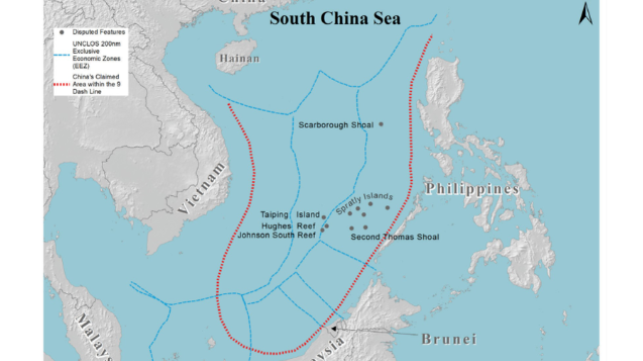Study: China Could Likely Afford to Shut Down S. China Sea Traffic

[By Greg Earl]
Just when the Regional Comprehensive Economic Partnership (RCEP) signing has provided some modest hope that common economic interests might help moderate the rising security tensions in the Indo-Pacific, new modeling provides an insight into the alternative scenario.
It suggests what the economic impact of a total shutdown of the maritime sea routes through Indonesia and the South China Sea would be in neighboring countries and some others. The study by University of Virginia economists assumes that maritime shipping would be mostly redirected to the south of Australia, leaving some countries reliant on only land or air cargo routes for their trade.
Taiwan is the biggest loser, with a 33 percent decline in GDP, followed by Singapore with a 22 percent loss, and Vietnam at 13 percent.
It is not surprising that these small, trade-dependent countries at the heart of the South China Sea would be hard hit. But Australia surprisingly comes in at the lower end of the scale, with only a 1.8 percent GDP loss in the baseline scenario, despite its large exposure to Asian trade.
China stands out with only a 0.7 percent decline, due to its big internal market and non-maritime alternative land trade routes, raising the prospect that it might be prepared to bear the economic costs of a South China Sea showdown.
The authors take a rather understated approach to this Chinese risk equation, noting that “our results emphasize the possibility of a large country maintaining control over the region by imposing substantial costs on smaller countries.”
They argue that it may not require an actual military conflict to disrupt shipping, because some companies may decide to use alternative routes just as result of rising or threatened tensions.
It is sometimes argued that China would be reluctant to interfere with South China Sea trade routes because it is as dependent on them for its trade as other countries. But this study provides a different perspective on the risks.
Greg Earl was the deputy editor, opinion editor, national affairs editor and Asia Pacific editor of The Australian Financial Review. He spent more than a decade as reporter based in Jakarta, Tokyo and New York. He is a member of the Australia ASEAN Council board and the ANU Indonesia Project advisory board. He is researching a book about Australia and Asia.
This article appears courtesy of The Lowy Interpreter and appears here in an abbreviated form. The original may be found in its entirety here.
The opinions expressed herein are the author's and not necessarily those of The Maritime Executive.
